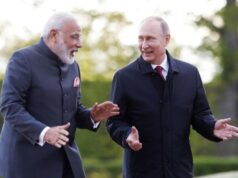ElsaMarie D’Silva, founder of the Red Dot Foundation, discusses the persistent issue of the gender pay gap in India and the recent slip in the World Economic Forum’s Global Gender Gap Index. She emphasizes the complexity of the problem, pointing out that while India has introduced women-friendly policies, their implementation often falls short due to entrenched patriarchal norms.
D’Silva highlights that despite progressive laws like the Prevention of Sexual Harassment at the Workplace and maternity benefits, societal attitudes hinder effective implementation. Patriarchy, with its harmful gender norms, restricts women from reaching their full potential. She notes that women often face discriminatory hiring practices and limited career advancement opportunities because of these deep-rooted biases.
Furthermore, D’Silva points out that while India has laws in place, they need to be accompanied by broad educational initiatives to shift societal thinking. She underscores the importance of viewing women’s work, including unpaid and underpaid labor, as valuable. For instance, community health workers, who played a critical role during the pandemic, often receive minimal compensation and recognition.
Comparing India to Bangladesh and Sri Lanka, D’Silva suggests that stronger macroeconomic policies and industries with higher female workforce participation might contribute to their better gender gap rankings. However, she insists that India must focus on its unique context and re-evaluate its policies and their implementation.
D’Silva advocates for increased transparency in pay scales and more inclusive corporate practices. She also emphasizes the need to promote entrepreneurship among women, particularly in micro-enterprises, by providing access to capital, skills, and mentoring. A holistic approach is required, combining policy, education, and societal change to address the gender gap effectively.
Her insights call for urgent action and innovation to improve gender equality in India.
Neelanjana Banerjee is a Broadcast Media Specialist with 23 years of cross-media experience in designing and producing content for television, radio and online media.
Having held a wide range of roles in various aspects of electronic media, she is a multifaceted professional and has an in-depth and hands on experience in broadcast
content, programming, media production, channel / product launch, TV and
radio skills training and online content.
Neelanjana was awarded the Chevening Gurukul fellowship in Leadership & Excellence from King's College, London in 2016.




